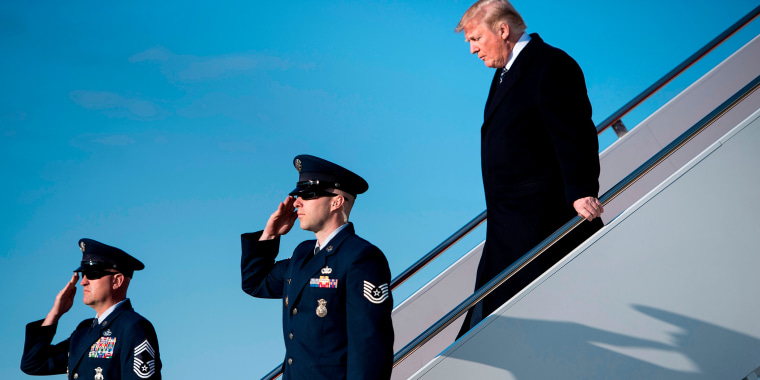A remarkable new report from The New Yorker reveals that former President Donald Trump disparaged his top military officials for failing to be “totally loyal” in the manner that he believed German generals were to Adolf Hitler.
While the vile quote doesn’t necessarily mean it’s accurate to describe Trump’s political project as fascist, it does illustrate his comfort with the ideology.
Here’s the incredible exchange, via The New Yorker:
The President’s loud complaint to [then-White House chief of staff] John Kelly one day was typical: “You [f------] generals, why can’t you be like the German generals?”
“Which generals?” Kelly asked.
“The German generals in World War II,” Trump responded.
“You do know that they tried to kill Hitler three times and almost pulled it off?” Kelly said.
But, of course, Trump did not know that. “No, no, no, they were totally loyal to him,” the President replied.
It may not be surprising to learn that Trump didn’t know that Hitler didn’t command unwavering loyalty among his military officers, and that some made several attempts to assassinate him.
Trump's malice and thirst for tyranny cannot be underestimated.
But that’s beside the real, unsightly point here, which is that Trump explicitly referred to Hitler as a model for political leadership. And the substance of his lament to Kelly was that what’s commonly understood as fascistic loyalty — unthinking obedience and a willingness to commit unfathomable harm for a leader — was missing from his top military brass’s response to his ideas.
It could be argued that the most critical moment of military resistance to Trump came when officials refused to carry out his order to violently mow down antiracist protesters outside the White House after a Minneapolis police officer murdered George Floyd. “You are all losers! You are all f------ losers!” Trump said, according to The New Yorker. He turned to Gen. Mark Milley, the chairman of the Joint Chiefs of Staff, and asked: “Can’t you just shoot them? Just shoot them in the legs or something?” Trump’s military officials talked him down from the idea. After that, Milley drafted a resignation letter but then decided it was better to stay in the administration to defend against Trump’s authoritarian tendencies from the inside.
Trump’s defense secretary at the time, Mark Esper, also openly defied Trump by publicly denouncing his hope to use the Insurrection Act to deploy military troops to cities to put down protests and push the country in the direction of martial law.
These interventions stopped Trump at critical moments and, to military officials, including Milley, served as warning signs of what Trump might attempt if he contested the election. Milley was later covertly involved in what The New Yorker describes as “land the plane” phone calls with other officials in the Trump administration in an attempt to ensure a peaceful transfer of power regardless of Trump’s personal agenda.
Does this reporting vindicate the argument of some political analysts on the left that Trump is a fascist? Not necessarily. Even during the aftermath of the Jan. 6 insurrection, many scholars of fascism were sharply divided over whether Trump should be characterized as a fascist based on the vision he articulated — or lack thereof. University of Wisconsin historian Stanley Payne argued that Trump shouldn’t be described as such because, among other things, he never embraced “a coherent new revolutionary ideology.” (Personally I’d call Trump’s first term proto-fascist and say his second presidential run could mark the maturation of that tendency.)
But there is no debate among these scholars about whether Trump behaved as an authoritarian and wished to thwart the democratic process. And that’s what’s key — regardless of where Trump fits on the spectrum of fascist thinking and action. It’s clear from his conversations with military officials that he believed that he deserved to wield absolute power over the affairs of the state. And Trump’s quest for this kind of power was so brazen that he didn’t shy away from openly envying Hitler in trying to induce it.
Regardless of what kind of right-wing extremist label most accurately describes Trump, the takeaway is that his malice and thirst for tyranny cannot be underestimated. And whether or not one considers him a fascist, massive countermobilization against his movement is crucial to protecting American democracy and multiculturalism.

